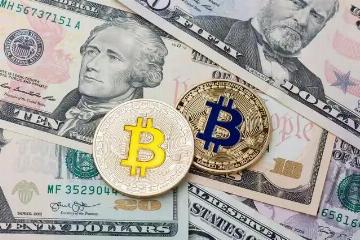- Finance
- November 6, 2024
- (102) comments
Dollar vs. Yuan: A New Cold War?
Advertisements
In recent years, the global financial landscape has undergone a remarkable transformation, particularly with the rise of the Chinese yuan (RMB) as a formidable player in international marketsThe evolving economic conditions and political strategies wielded by various nations present a complex tapestry, where the strength of currencies oscillates, driven by a variety of factors that include monetary policy, geopolitical shifts, and investor sentimentThis article aims to explore the intricate dynamics at play, specifically regarding the resurgence of the yuan and the rising scrutiny of the US dollar amidst a backdrop of increasing cryptocurrency adoption.
To understand the current clout of the yuan, we must first look at the multifaceted drivers behind its riseOver the past decade, China's economy has presented significant resilience and growth, boosted by progressive government initiatives and infrastructure development
Advertisements
The Belt and Road Initiative (BRI), a monumental undertaking by China to enhance connectivity and cooperation across Asia, Africa, and Europe, has catalyzed a surge in RMB transactionsIn doing so, it has introduced the Chinese currency to a broader audience, prompting countries to consider RMB for their trade dealings, encouraging economic diversification beyond traditional currencies.
Simultaneously, the ascension of digital currencies has introduced a layer of complexity to the financial landscapeBitcoin, as the pioneering digital currency, experienced a meteoric rise in popularity fueled by an enthusiastic investor baseHowever, this cryptocurrency has been grappling with criticisms surrounding its volatility and security issuesThe initial promise of Bitcoin as a stable alternative to fiat currencies is now being questioned, with many investors reassessing their confidence in its long-term viability
Advertisements
The narrative surrounding cryptocurrencies has thus shifted from unbridled optimism to a more cautious and critical perspective.
Within this setting, discussions around shorting the US dollar have begun to gain tractionTraditionally considered a safe haven and the world's primary reserve currency, the dollar's dominance now faces challenges from a growing number of economies eager to cement their own currency's global statusAs nations gradually diminish their reliance on the dollar for international trade, this shift signals a potential reconfiguration of the global financial architectureThe emergence of alternatives has made waves in discussions on dollar hegemony.
The concerns surrounding the dollar don't simply end with its challengers gaining footholdsFactors such as surging inflation rates and escalating national debt in the United States have exacerbated uncertainty around the currency's stability
Advertisements
Investors, ever keen on preserving their capital, are increasingly pivoting toward emerging markets and diverse currencies that promise liquidity and growth potential amid prevailing economic turbulenceThis emerging trend marks a significant departure from previous sentiment that was heavily reliant on the dollar.
Analysts speculate that now is an opportune moment to look beyond the dollar and consider strategic positions that position investors in favor of emerging alternatives, particularly the yuanThe convergence of RMB internationalization and the evident shift away from the dollar signifies a strategic opportunity for investorsThe idea of 'de-dollarization' has gained momentum, compelling stakeholders in the financial markets to rethink their currency exposure.
However, engaging in short-selling the dollar isn't merely a straightforward endeavor—it requires comprehensive market analysis and foresight
- China Chips Away at Global Semiconductor Slump
- Japan's Semiconductor Industry: Can It Rebound?
- U.S. and European Markets Close Lower
- Surge in Chinese Assets!
- Is the U.S. Planning to Build a Bitcoin Reserve?
Investors must sift through a wealth of information and trends to navigate these turbulent waters successfullyUnderstanding the trajectories of both the yuan and cryptocurrencies will be imperative for discerning the broader market climate, and leveraging these insights may present pathways toward capitalizing on emerging trends.
The ongoing 'counteroffensive' of the yuan is emblematic not only of China's push for economic elevation but also reflects broader shifts occurring within the global financial systemInvestors must attune their strategies to adapt to this evolving environmentContinuous vigilance and willingness to pivot in response to market signals will be pivotal in protecting assets and enhancing portfolio performance.
Ultimately, the narrative of the yuan's rise juxtaposed against Bitcoin's existential challenges opens up a discourse on investment strategy in a rapidly changing world

Is aligning with the yuan a prudent option for investors as they navigate the volatility of the dollar? Decisions must be predicated on personal risk tolerance and investment philosophyThe path forward may yield new opportunities, but it requires a thoughtful approach and robust understanding of the financial landscape.
Leave your comment
Copyright © 2024. All rights reserved. This site is protected by reCAPTCHA and the Google Privacy Policy and Terms of Service apply.